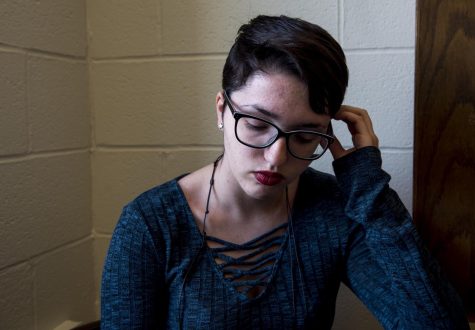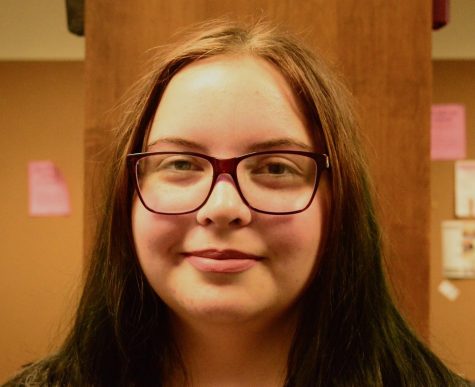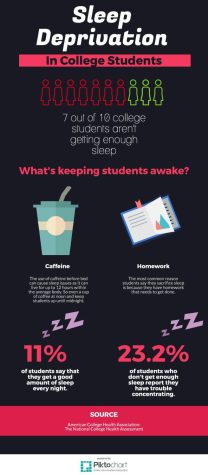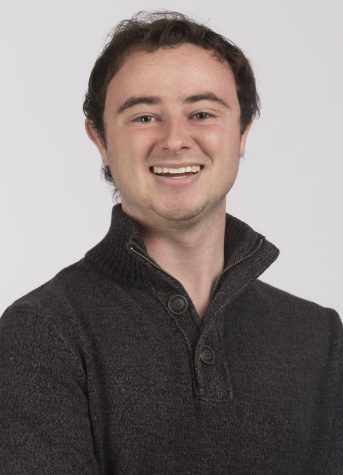HEADER HERE FOR RACHEL’S STORY
April 30, 2017
Kent State is doubling the number of psychologists at University Psychological Services (UPS) to meet a demand that has increased by more than 450 students in the last six years.
One new psychologist was added this spring semester. Four more will start by fall, bringing the total at UPS to 10.
The department is also adding a case manager to coordinate off-campus referrals and is planning a 24-hour mental health hotline run by an outside agency.
The move is in response to a caseload that has gone from 573 in academic year 2010-11 to 1,025 last year, the most recent number available.
UPS is one of three counseling services on campus and handles about 60 percent of students who seek help. The Counseling and Human Development Center in White Hall, the second largest, has seen a similar but smaller increase in the same time period and has limited the number of students it sees because of staff and space restrictions.
The increase in demand for counseling has led to waiting times for students seeking help that can range from two weeks to as long as four months at psychological services. The White Hall clinic doesn’t use a waiting list; when it reaches capacity, it doesn’t take new clients.
The decision to drastically increase staffing came after a study that developed a “strategic road map” as part of a Kent State of Wellness initiative championed by President Beverly Warren.
“Our vision is to become the healthiest campus in the country,” said Shay Little, vice president of student affairs. “And we can’t be that if the ratio of counselors to students is off.”
The goal of increasing mental health services, along with other projects such as the tobacco-free initiative, are a part of the university’s commitment to cultivating and promoting a healthy campus environment that started last fall.
Despite an expanding demand in services since 2010, UPS still retained only five full-time licensed psychologists and one part-time psychologist. In the last three and a half years it also had one chemical dependency counselor.
The increase in demands results from higher stress in life and a greater willingness to seek help, Kent State health professionals say.
“Our culture is very stressful,” said Pamela Farer-Singleton, the chief psychologist of UPS. “Our society is very well on-demand every second of the day. We have very difficult lives because we’re meeting other people’s demands all the time, whether that’s your cell phone or responding to other people’s requests.”
Jason Miller, director of the Counseling and Human Development Center, said students are pursuing psychological services more because there is more stress in life, but less resiliency to deal with it.
“Generally, I think some of the parenting methods students experienced as children is why the resilience is low,” he said. “Students generally nowadays struggle with the ability to problem-solve effectively, I believe. So when you don’t know how to problem solve, and you can’t form and find a solution, suicide seems like the best option. Mix anxiety in with it and you have a problem.
KSU Psychologists are also noticing the stigmatization of mental illness has decreased in recent years.
“The stigma of mental health on campus has worn away a little bit. It’s still ther but not as much as 10 years ago,” Miller said. “Back then it may have been a little weird to admit that you were seeing a psychologist.”
Parents are also encouraging its students to pursue psychological services in order to avoid previous struggles of mental health.
“Students (are) more than oftentimes dealing with mental health concerns as adolescents,” Farer-Singleton said. “So there is not the same challenge of educating them to get help because they have already been aware of the need for help when they were high schoolers. Many times people suffer their first episode of depression as an adolescent. So many of our students were seeing have already received services prior to coming to the university, and of course they as well as their parents are concerned about having continuity of care.”
She started noticing an increase in students pursuing services over a decade ago.The Office of Student Affairs didn’t start implementing changes until this past year.
“There has been more of a commitment from our student affairs and administrative arm of the university (recently) to hire additional staff in order to meet our demands,” Farer-Singleton said.
Kent State’s increasing demand reflects national trends. According to the Center for Collegiate Mental Health, the average level of counseling center utilization grew by 30 percent nationally just between 2015 and 2016.
The Division of Student Affairs in 2015 partnered with the Jed Foundation, a non-profit organization based out of New York devoted to protecting the emotional health of young adults, in order to find out how Kent State can improve its mental health services.
Jed’s four-year JED Campus nationwide initiative is designed to “empower schools with a framework and customized support to enhance student mental health and substance abuse and suicide prevention efforts,” according to its website.
“This nonprofit is the leader in promoting college mental health and has the only program we are aware of that partners with universities to assess the services and programs to support mental health on campus,” Little said.
The program cost a one-time fee of $8,000 for all campuses and programs. It was paid for by unallocated funds from programs within the Division of Student Affairs.
More than 100 schools across the United States are members of JED campus because they want to improve their mental health services, according to Nance Roy, clinical director at The JED Foundation.
The first phase of the project was completed in March 2016 when representatives from the eight Kent State campuses responded to a 128-question self-assessment about the mental health promotion, substance abuse and suicide prevention programming.
After the assessment was completed, Roy visited the campus to look at gaps in mental health services and then provide a guide for the university in order to improve its environment for mental health.
“What we’re (Jed) is really trying to do is make mental health a public health approach (at the university),” Roy said. “These issues cannot fall primarily on health services. It is a campus-wide responsibility that will not work without support from the top down.”
While the four-year project is ongoing, here is what the organization identified, according to Little:
-
Increase mental health services to students across the Kent State University system. According to Roy, it was the most unique aspect of Kent State’s mental health services as different colleges have “varying level of services.” Kent State main campus and Kent State Stark were reported to be “thinly-staffed” in the assessment. Kent State Ashtabula, Tuscarawas, Geagua and the College of Podriatic Medicine do not provide counseling services.
-
Review policies for withdrawal of health reasons, and the tuition repeal process.
-
Increase promotion of mental health services. This lead to the enhancement of the Step Up Speak Out program.
The administration extended the contracts of some senior psychologists to 12 months, those who normally only work 36 weeks out of the year.
Also, by extending the hours of a nurse practitioner through Coleman Behavioral Services, Little says the administration can be more accommodating to students who need medication for mental health reasons.
“So not only students will be able to receive psychological services, but if they need medication it will be more readily available to them,” Little said.
Currently a psychiatrist is on campus one day a week to work with students whose counselors think they need medication to treat mental illness
The case manager will assist in tracking support for students who might be referred to other agencies off-campus for special accommodations, and to determine if those students need to return to UHS to receive additional resources.
According to Roy, the case manager will help ease the burden of psychologists by helping students who want off-campus help, or those who are high-risk and need help transitioning back into the school environment.
UPS refers eight to 10 students to off-campus counseling per semester.
Students are most likely to seek help for anxiety, depression, low self-esteem and relationship and family problems at Kent State, according to a combined database of diagnoses kept by all of KSU‘s mental health services.
Anxiety has passed depression, which was once the most common mental health problem on campus. This past year alone 69.5 percent of student concerns was anxiety, according to Miller.
It is increasingly becoming a bigger problem on college campuses. According to the Anxiety and Depression Association of America, 85 percent of all students report they have felt overwhelmed at one point in their college careers.
The association says that college students are the most at risk for anxiety because they are trying to balance school, work, friends and family while trying to figure out the rest of their lives. Other factors, like student loan debt, are big contributors, an association study found.
As demand increased over the last six years, UPS increasingly has used group therapy and outside referrals to combat the issue.
In group therapy, discuss their problems and solutions. UPS currently offers four groups, ranging from LGBTQ issues to students recovering from substance abuse. It has been running these groups for the past three semesters.
“The groups were the best way to combat the wait list problem. Our anxiety group has two meetings during the week, since that is our most prominent issue,” Farer-Singleton said.
She is seeing some students who are put on waiting lists pursue the groups while waiting for individual counseling.
The new mental health initiative will be funded by existing departmental operating funds from University Health Services that is being repurposed to support mental health services.
Rachel Duthie is the student life reporter, contact her at [email protected].






















